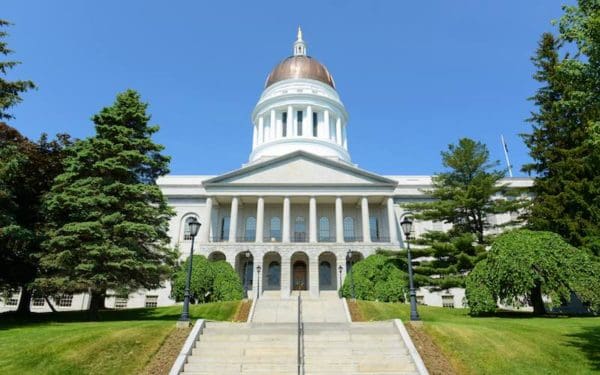
Energy efficiency saves you money, cleans up our air, and even improves your health – all while protecting our climate. Photo: Shutterstock.
Update: On December, 10, 2021, Conservation Law Foundation (CLF) joined New Hampshire’s utility companies, the state’s consumer advocate, Clean Energy New Hampshire, and others in filing a motion to halt the Public Utilities Commission’s rollbacks to the state energy efficiency program. However, the Commission rejected this challenge on January 7, 2022, digging its feet even deeper into a harmful decision for the climate and New Hampshire’s families. We strongly disagree with this decision, and will be moving forward with an appeal to the New Hampshire Supreme Court.
This piece was originally published in the Concord Monitor.
The state’s Public Utilities Commission recently dealt a devastating blow to New Hampshire’s energy efficiency efforts by reversing nearly a decade of progress on energy efficiency in the state.
The Commission rejected a plan that was supported by the state’s utilities, the state’s consumer advocates and environmental organizations like Conservation Law Foundation. That plan would have substantially improved New Hampshire’s overall energy efficiency, created thousands of jobs, helped families and businesses save billions of dollars in energy costs, and lowered energy bills for most New Hampshire families and businesses.
The plan also would have helped get people back to work in energy jobs in New Hampshire, where almost 2,000 jobs, most of them in the field of energy efficiency, were lost during the pandemic.
Despite its many benefits, the plan received no support from Governor Sununu. On November 12, the Public Utilities Commission took the draconian step of not only rejecting the plan, but also arbitrarily and unreasonably gutting existing energy efficiency programs in the state by substantially cutting funding for such programs.
How the Plan Would Have Helped New Hampshire
Energy efficiency is a powerful tool in the fight against climate change and in making progress towards a more equitable future. It also can save you money, clean up our air, and even improve your health. At its most basic level, energy efficiency is about making the electricity you use go further, which reduces the overall demand for energy.
The programs in the plan would have significantly decreased energy use and carbon pollution, and reduced energy bills more than ever before, through slashing wasteful electricity and gas consumption.
The energy efficiency plan also would have invested more money to address the needs of low-income families, in recognition that high bills and cold nights reduce the quality of life for many New Hampshire residents.
The plan would have given residents and businesses the power to make their own decisions on energy consumption, instead of relying on utility companies to decide what’s best for New Hampshire. Corporations also would have saved money by reducing electricity demand during key hours (think 90+ degree afternoons in the middle of August).
We Must Do Better
Given its many benefits for New Hampshire families and businesses, not to mention our climate, it’s unfortunate that energy efficiency has not been a priority for our governor or our legislators.
The lack of support for energy efficiency from elected officials has given the Commission a free pass to not only reject a plan that would have benefited all of New Hampshire, but to also issue an order that takes New Hampshire in a radically different direction: backwards.




